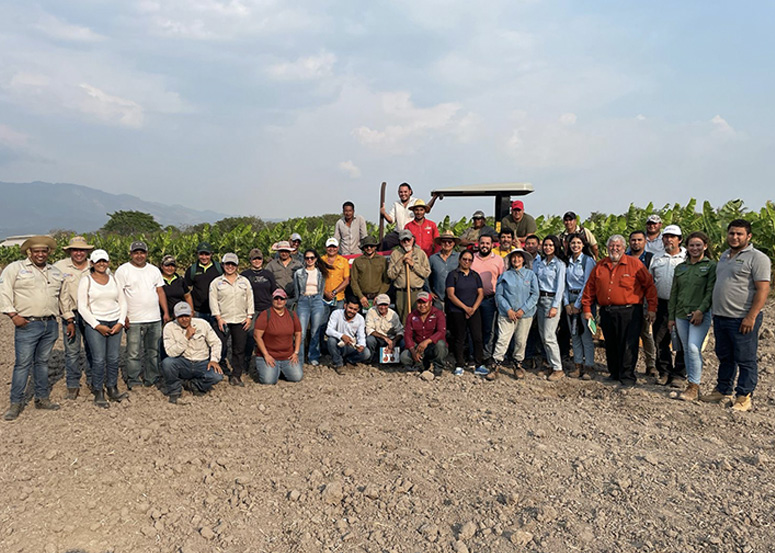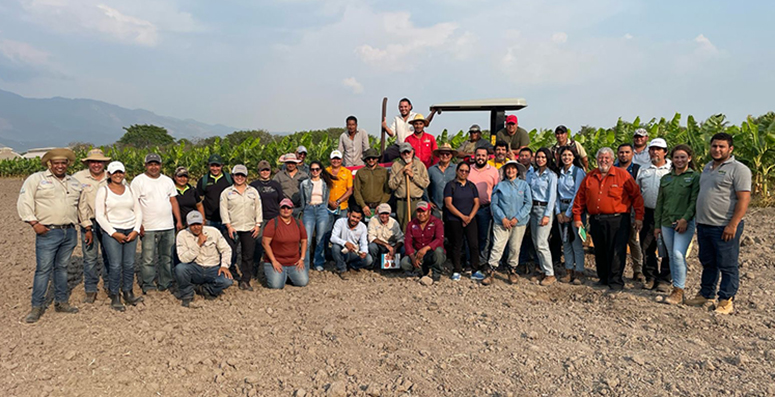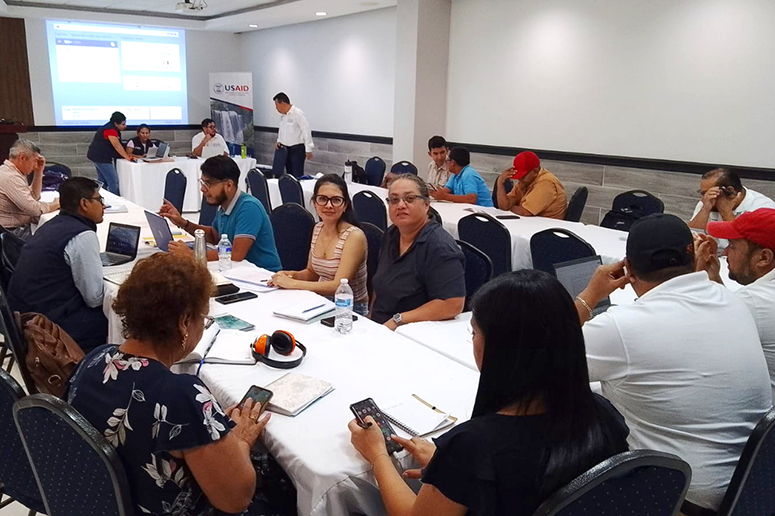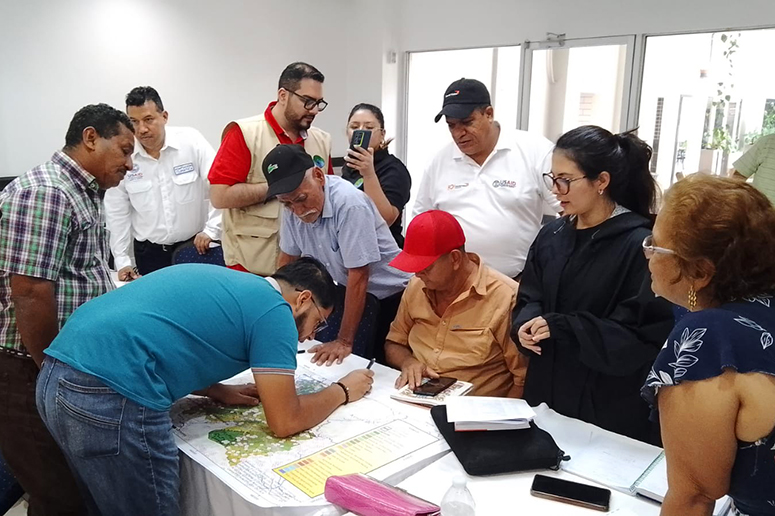


Comprehensive soil carbon training and methods are utilized by forest restoration teams working on Integrated Open Canopy™ (IOC™) coffee farming in the Yoro Biological Corridor (YBC).
Last week, team members received USAID certificates for completing a 32-hour long “Soils and Plant Nutrition” course (April 22-24th). The course took place in El Progreso, Honduras, and covered the latest techniques for measuring and analyzing soil health. The course compliments the team’s extensive field and lab training in measuring carbon sequestration in soils on IOC™ farms.

Pico Pijol Park Assessment
During the same week (April 22-26th) and under facilitation by USAID, Mesoamerican Development Institute (MDI) contributed to an assessment of Pico Pijol National Park and surrounding regions of the YBC that are threatened by expanding coffee production. The assessment, conducted by MDI and fellow park Co-Managers, uses a system called the “Ecosystem Integrity Index”. Related to this, MDI published a “Sustainability Update From the Coffee Regions of the Yoro Biological Corridor Initiative”.
Mapping and map analysis are a major part of assessing forest conditions and threats. MDI’s use of local, on-the-ground mapping techniques ensures up-close precision that compliments satellite-generated maps and it generates employment within the local community.
